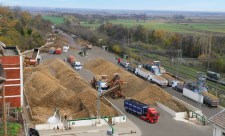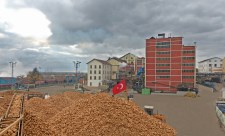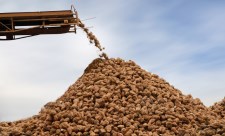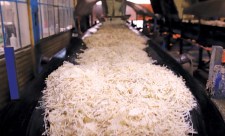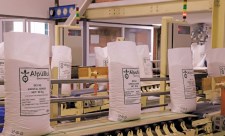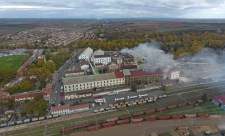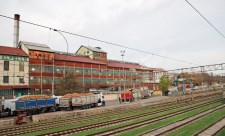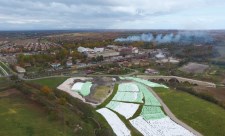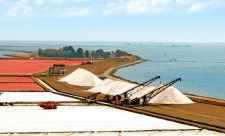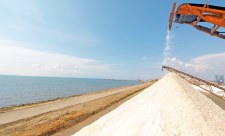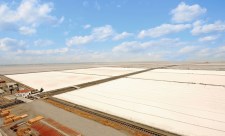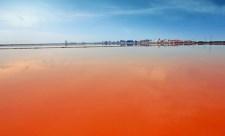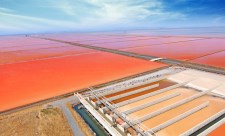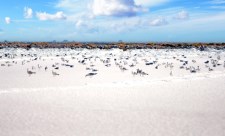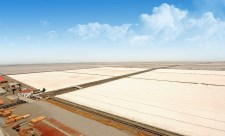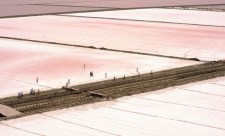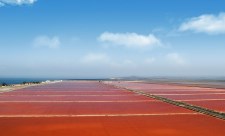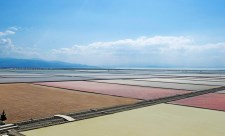Binbir Gıda produces the only sea salt in Türkiye in İzmir Çamaltı Saltworks and Balıkesir Ayvalık Saltworks within the scope of the contract signed with the Republic of Türkiye Prime Ministry Privatization Administration in April 2010. Having placed the highest bid in the privatization tender of Alpullu Sugar Factory belonging to Turkey Şeker Fabrikaları AŞ (Türkşeker), Binbir Gıda acquired Alpullu Şeker on 30.10.2018. The sugar beet produced in Thrace is converted into sugar in Alpullu, the first sugar-producing factory in Turkey, which was established as per Atatürk's instructions. Alpullu Şeker, which produces 25,000 tons of sugar annually, contributes to the region's livestock with the by-products of beet.
The first factory in the sugar industry established by the Republic of Türkiye in spite of great vicissitudes, the Alpullu Sugar Factory is also the embodiment of a spiritual heritage making us proud. It is one of the first steps of the Turkish Nation desiring to exist independently in dignity, elude foreign dependency and succeed in the national industrial movement. Thus, the Alpulu Sugar Factory is the local keystone of a lifestyle no limited to sugar production. Making our villagers farmers and equipping them with new production techniques through training are among the commitments perpetually embraced by the institution. The Alpullu Sugar Factory also aims to increase the production capacity in proximal locations and spread and share economic and social welfare. The employment opportunity, the production power and the abundancy created locally along with its contribution to the country's economy have rendered the company the apple of the Thracian people’s eye.
Çamaltı Saltworks is the largest sea saltern of our country, established on an area of 73 km2 in the Gediz Delta. Çamaltı Saltworks, located in İzmir province, Çiğli district, near Sasalı Town, holds an industrial history of approximately 150 years. The saltworks have been established in this region due to the low slope of the region, low precipitation, high net evaporation, the presence of drying winds and extended marketing opportunities.
Dating back to 250-300 BC, the Çamaltı Saltworks where salts accumulating in coastal ponds have been collected and processed with primitive methods for centuries, has now reached a capacity of 600,000 tons as a result of the improvement works of Binbir Gıda. Used for the first time by the Macedonians, salt was developed and operated continuously during the Seljuks and Ottomans. Evliya Çelebi, who visited the region in 1671-1672, mentions the place as “Tuzla-i Melemeniye” in his 'Book of Travel'. The salt produced in the saltern privatized during the reign of Sultan Abdülmecid was sent to Balıkesir, Aydın and Afyon regions with thousands of camels.
Çamaltı Saltworks is an ecosystem with biological diversity complementing the wetland nature of the Gediz Delta. In the area dominated by salt plants, there are 306 plant species belonging to 60 families, 206 genera, and 63 species of phytoplankton in Homa Dalyan. In the observations conducted, 289 bird species were identified in the Gediz Delta and 117 of such species are brooding in the delta. The fact that 37 of the brooding species are waterfowl underlines the significance of the delta and the salterns. The Dalmatian Pelican (Pelecanus crispus), Lesser Kestrel (Falco naumanni) and Pygmy Cormorant(Phalacrrocorax pygmeus) which are considered “Endangered” in Europe breed in the Gediz Delta. The most important species preferring Çamaltı Saltpan as a breeding and feeding area is the flamingo (Phoenicopterus roseus).
Binbir Gıda continues to produce for our future with the principle of "a producing society is a soaring society".

